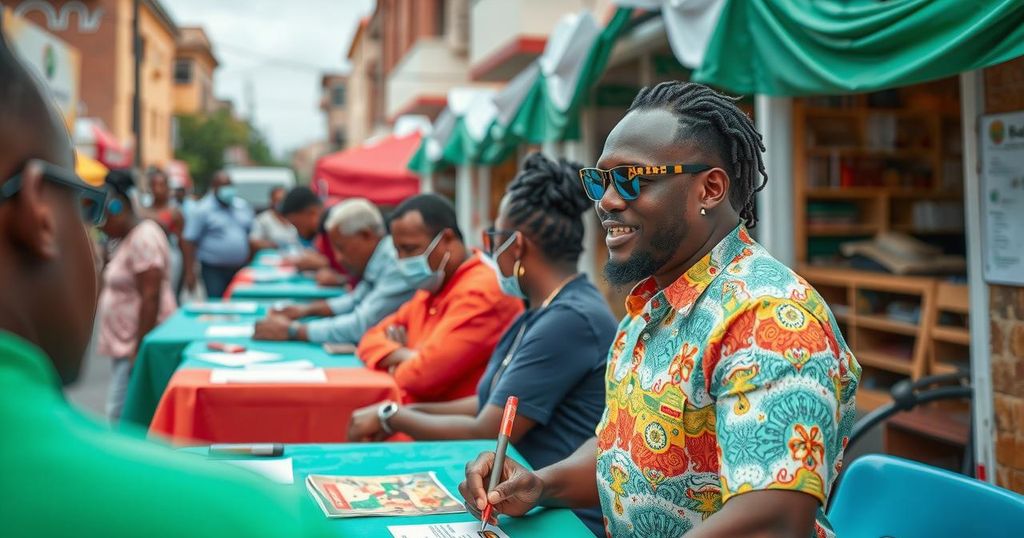Accra Residents Anticipate Competitive Presidential Election in Ghana
As the December 7, 2024 election approaches, residents of Accra’s Odododiodio district are divided between NPP’s Mahamudu Bawumia and NDC’s John Mahama. Economic concerns dominate the local discourse, with both candidates presenting differing approaches to tackle the nation’s financial difficulties. Historical loyalties and family traditions also play a crucial role in deciding voter preferences, making this district a key battleground in the upcoming election.
As Ghanaians prepare to vote in the presidential election scheduled for December 7, 2024, residents of Accra’s Odododiodio district are divided in their support between ruling New Patriotic Party (NPP) candidate Mahamudu Bawumia and opposition National Democratic Congress (NDC) candidate John Mahama. This district, which narrowly leaned towards the NDC in the previous election, continues to be a focal point of interest due to its history of close races between the two leading parties since the inception of multi-party politics in Ghana in 1992.
The economic concerns of the electorate have taken center stage, especially following a significant debt default and rampant inflation reaching 23 percent. Voters are questioning which candidate will be better equipped to navigate these challenges: Mahama, who is advocating for extended industrial hours to stimulate the economy, or Bawumia, who promotes digitalization and the continuation of the NPP’s free education policies as key instruments for recovery. Political observers note that the dynamics in the Greater Accra area could play a crucial role in determining the election outcome.
Family loyalties and traditional affiliations also influence voters’ decisions, as demonstrated by local sentiments. For instance, Emmalyn Asiamah expressed her commitment to voting for Mahama, citing familial allegiance, while Samuel Laryea noted his preference for Bawumia, despite the latter’s party’s previous loss in the district context. The contrasting viewpoints reveal the complexity of voter sentiment within this economically challenged region.
As both camps bolster their campaigns, the significance of economic management and party loyalty remains paramount in the minds of Odododiodio residents, reflecting the broader national conversation around leadership and future prospects for Ghana’s democracy.
In summary, as the election looms, it is evident that Accra’s voters are deeply engaged in assessing their choices, balancing economic considerations with historical party loyalty in what is expected to be a fiercely contested election.
The upcoming presidential election in Ghana is set against a backdrop of economic unrest and political rivalry, heavily influenced by the economic repercussions of global events such as the COVID-19 pandemic and the war in Ukraine. Accra, particularly the Odododiodio district, has become emblematic of a wider national determination to navigate the current crisis, creating a battleground for the two dominant political parties: the NPP and the NDC. Both parties are vying for voter confidence, particularly among young and first-time voters who are concerned about the economy and job creation.
The political climate in Odododiodio illustrates the complex interplay between economic anxiety and party allegiance as Ghanaians prepare for a tightly contested election. With significant attention to economic management, both candidates are making their cases to the electorate amid a challenging economic landscape. The outcome of this election may heavily depend on how effectively each candidate can resonate with the pressing concerns of voters in Greater Accra and beyond.
Original Source: www.seychellesnewsagency.com




Post Comment